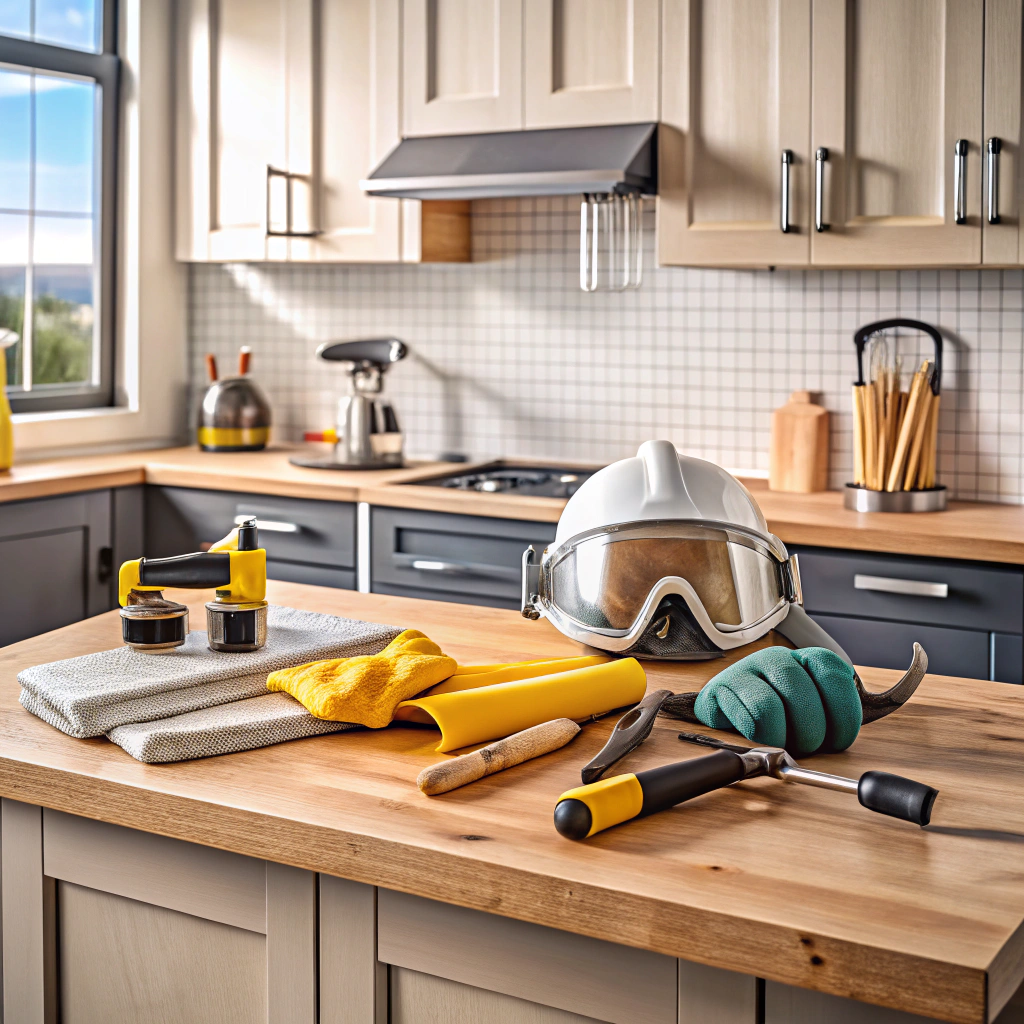Last updated on
Discover effective methods to eliminate the unpleasant musty odor emanating from your kitchen sink and enjoy a fresh, clean space for all your cooking needs.
Have you ever walked into your kitchen and noticed a musty smell coming from your sink? It’s not only unpleasant but can also be a sign of hidden problems lurking in your plumbing system. The good news is that getting rid of this odor is not as difficult as you may think.
In this article, we will explore the root causes of the musty smell in your kitchen sink and provide practical solutions to help you eliminate it for good. So, if you’re tired of holding your breath every time you approach the sink, read on to discover how to get rid of that pesky odor once and for all!
What's Inside
Identifying the Source of Musty Smell
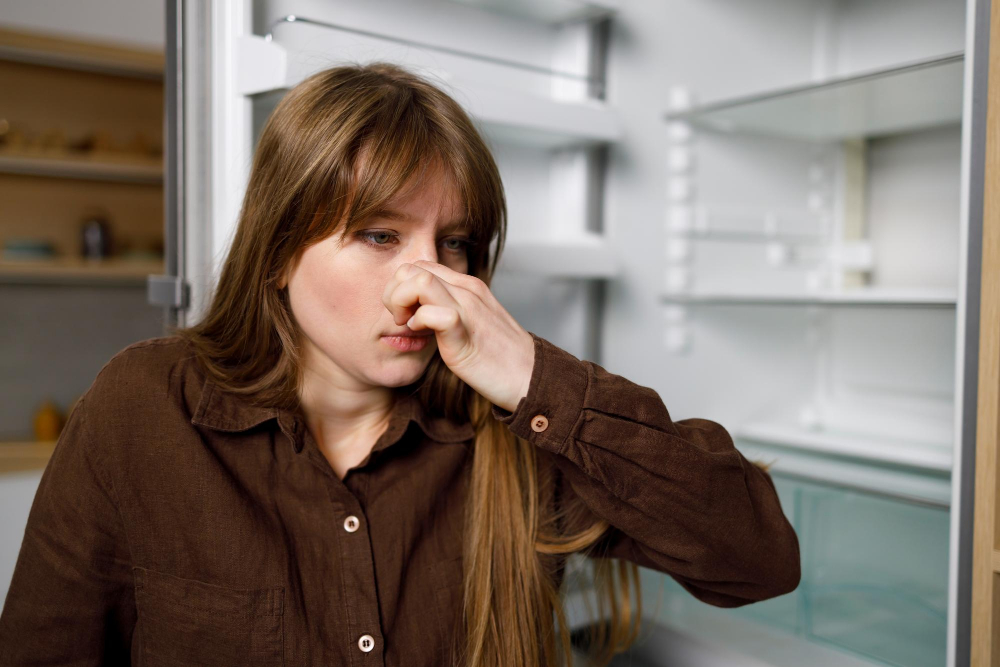
The first step in getting rid of the musty smell in your kitchen sink is to identify its source. The odor could be caused by a variety of factors, including sewage backup, mold and mildew growth, or even clogged drains.
To determine the root cause of the problem, start by sniffing around your sink area and try to locate where exactly the smell is coming from.
If you notice that it’s strongest near your drain or garbage disposal unit, then there’s a good chance that food particles have accumulated inside them over time. On the other hand, if you detect an unpleasant odor throughout your entire kitchen space with no clear origin point – this may indicate more serious issues such as damaged pipes or poor ventilation.
Once you’ve identified where exactly the musty smell is emanating from; it will be easier for you to take appropriate measures towards eliminating it completely.
The Main Reasons for the Musty Odor in the Sink Area
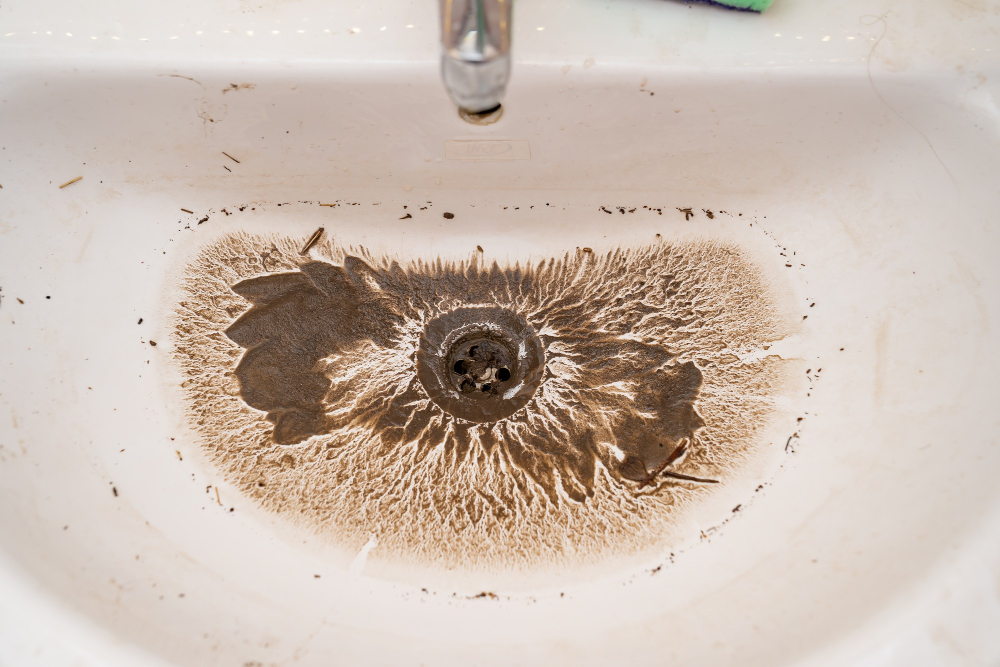
One of the most common reasons is sewage backup, which occurs when wastewater fails to flow out of the drain due to blockages or damaged pipes. Another culprit could be mold and mildew growth, especially if there’s a lack of proper ventilation in your kitchen.
Moreover, food debris and grease buildup can accumulate over time inside the garbage disposal unit leading to unpleasant odors emanating from it. Stagnant water that remains trapped within the P-trap under your sink may also contribute to a musty smell.
Identifying these root causes is crucial for effectively eliminating any unwanted odors coming from your kitchen sink area.
Sewage
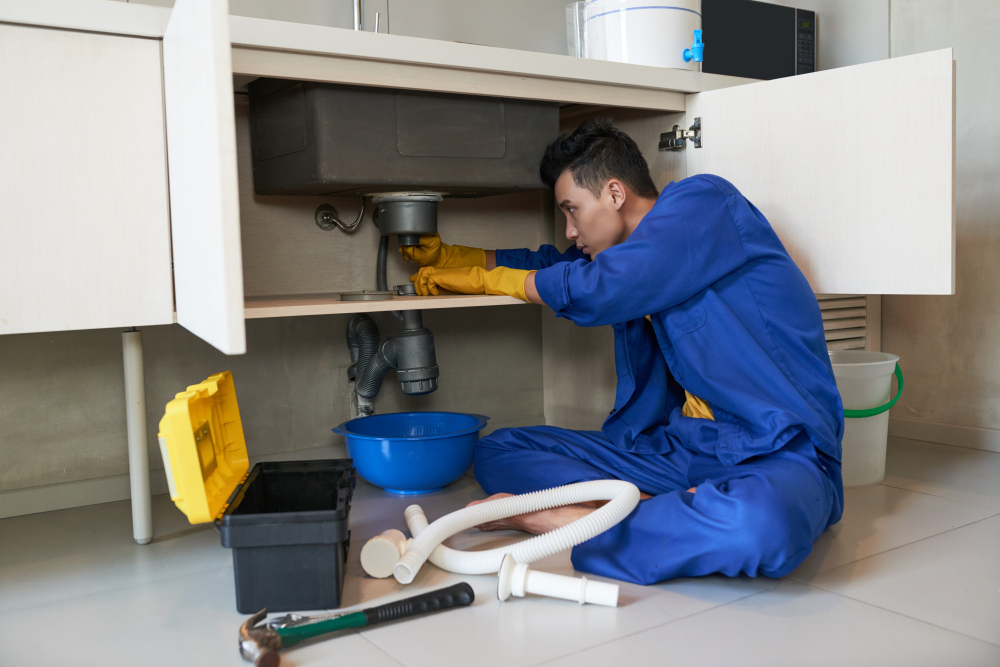
If you notice an odor that smells like rotten eggs, it could be due to sewage gases escaping from your plumbing system. This can happen when there is a blockage or damage to the pipes, causing wastewater and sewage to back up into your home.
To prevent this issue, it’s important to have regular maintenance checks on your plumbing system by a professional plumber. They will inspect for any signs of damage or blockages and repair them before they become bigger problems.
If you suspect that the musty smell in your kitchen sink is caused by sewage gases, do not attempt DIY repairs as this can be dangerous and cause further damage. Instead, call a licensed plumber immediately who has experience dealing with these types of issues.
Mold and Mildew
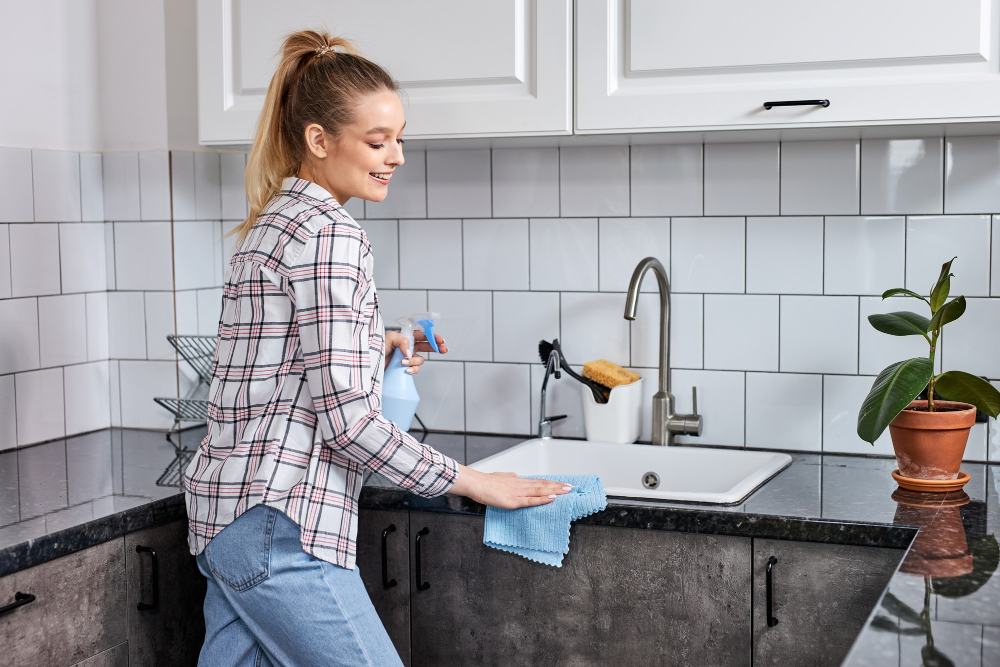
These fungi thrive in damp environments, making your sink area a perfect breeding ground for them. If left unchecked, mold and mildew can cause health problems such as respiratory issues and allergies.
To get rid of mold and mildew, start by cleaning the affected areas with a mixture of water and bleach or vinegar. Scrub thoroughly to remove any visible signs of growth.
Prevent future growth by keeping your sink area dry at all times. Wipe down the sink after each use to prevent moisture buildup.
You can also install a dehumidifier or fan to keep air circulating around the area.
Regularly Clean the Sink and Drain
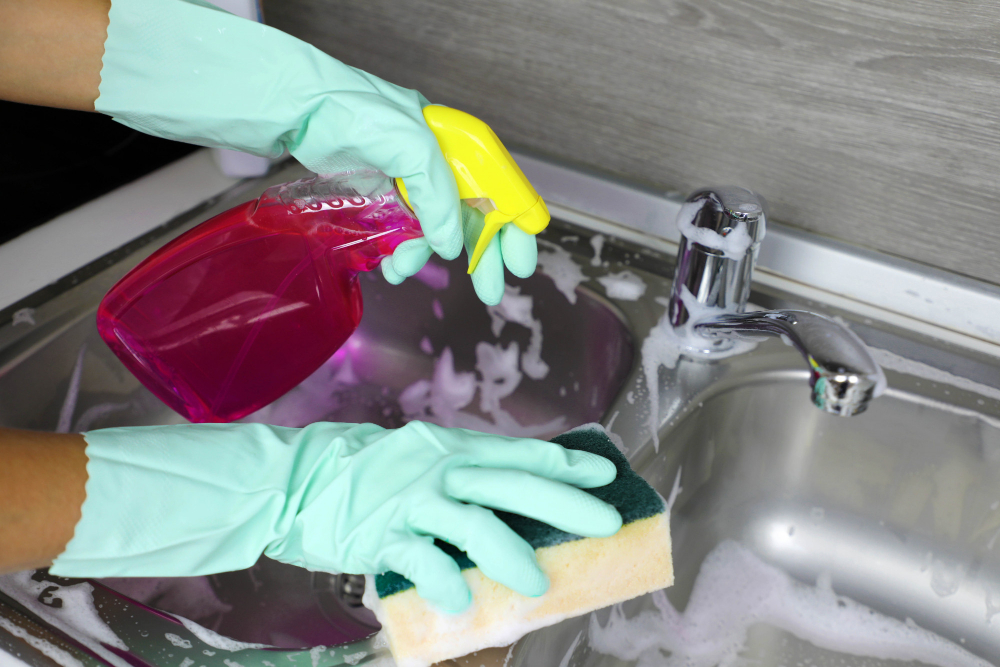
Over time, food particles, grease, and other debris can accumulate in the drain and cause unpleasant odors. To avoid this problem, make sure you clean your sink at least once a week using warm water and dish soap.
To clean the drain effectively, remove any visible debris or hair that may have accumulated on top of it. Then pour a mixture of baking soda and vinegar down the drain followed by hot water to flush out any remaining residue.
If you notice that your sink still has an odor after cleaning it thoroughly with soap and water or if there are signs of mold growth around its edges or inside its basin area then consider calling in professional help as these could be indications for more serious issues such as clogged pipes which require specialized equipment to clear them out properly.
Maintaining Proper Drainage
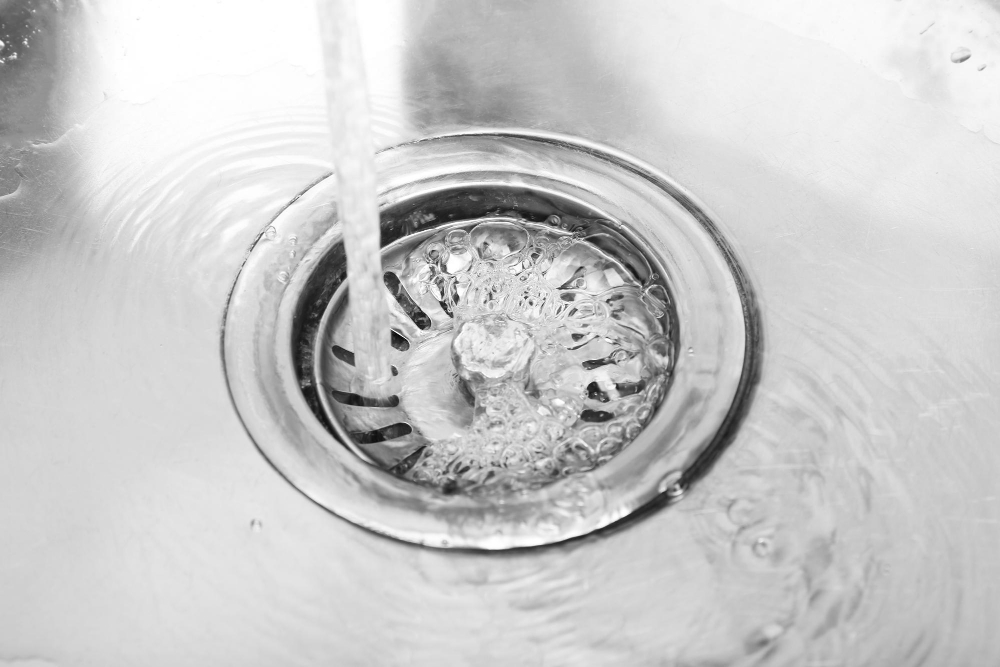
When water doesn’t flow freely through your pipes, it can create stagnant pools that lead to mold and mildew growth. To prevent this from happening, you need to maintain proper drainage by regularly cleaning out any debris or buildup that may be clogging up your pipes.
To start with, remove the drain stopper and use a flashlight to inspect the inside of the drain for any visible blockages such as food particles or hair. You can then use a plunger or plumbing snake to dislodge anything stuck in there.
Another way of maintaining proper drainage is by pouring boiling water down your sink once every week. This helps dissolve grease and other substances that may have accumulated on pipe walls over time.
Checking for Drain Blockages
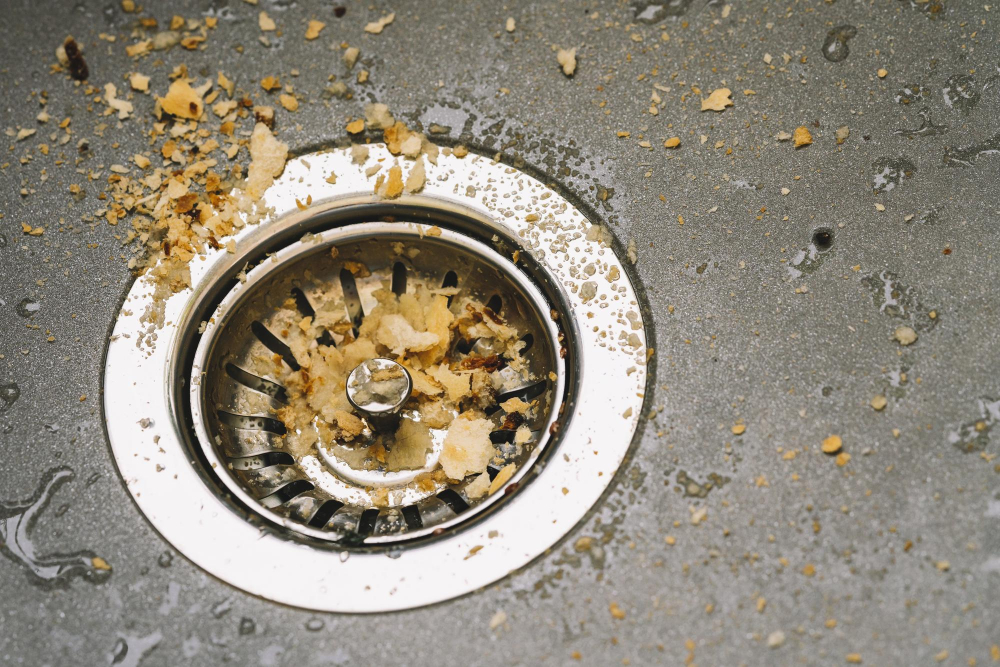
Blockages in the drain can cause water to accumulate, leading to mold growth and unpleasant odors. To check for blockages, start by removing any visible debris from the sink strainer or stopper.
Next, use a plunger or plumbing snake to clear out any clogs that may be further down in the pipes.
If these methods don’t work, you may need professional help from a plumber who can use specialized tools like hydro-jetting equipment or video cameras to locate and remove stubborn blockages.
Prevention is key when it comes to avoiding future drain blockages that could lead back into musty smells emanating from your kitchen sink area. Avoid pouring grease down your drains as this will solidify over time causing buildup which leads up towards clogging of pipes; instead dispose of grease properly by letting it cool then throwing away with other trash items.
Clearing the Garbage Disposal
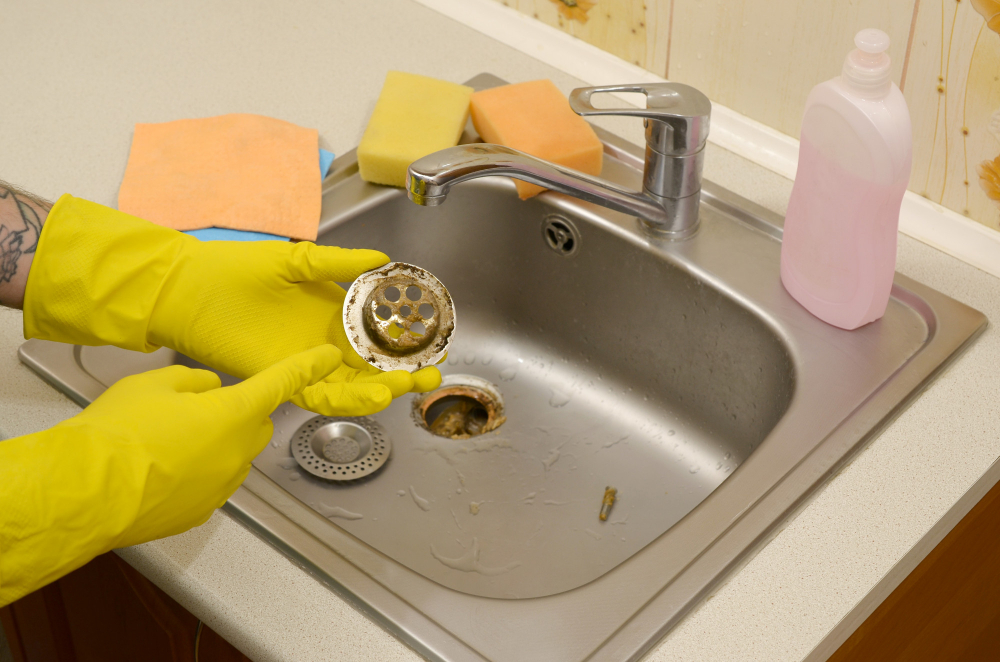
Food particles and debris can accumulate over time, leading to unpleasant odors that can spread throughout your kitchen. To clear out any blockages, start by turning off the power supply to your garbage disposal unit.
Next, use tongs or pliers to remove any visible debris from inside the unit. You may also want to try pouring some baking soda down into it followed by vinegar and let it sit for 10-15 minutes before flushing with hot water.
If you still notice an odor after cleaning out your garbage disposal, consider using enzyme-based cleaners specifically designed for this purpose. These cleaners break down organic matter and eliminate odors at their source without damaging pipes or other plumbing fixtures.
Dealing With Garbage Disposal Issues
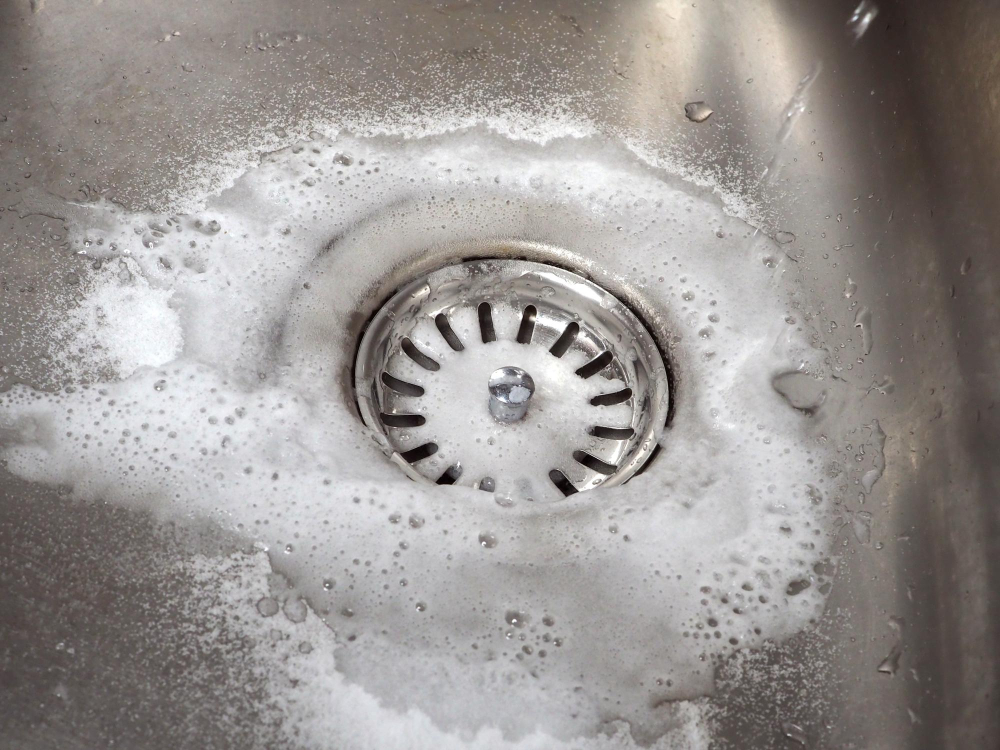
If you suspect that your garbage disposal is causing the odor, there are several things you can do to address it.
Firstly, turn off the power supply to your garbage disposal and unplug it from its electrical outlet. Then use tongs or pliers to remove any visible debris stuck inside the unit.
You may also want to try pouring some baking soda down into the drain followed by vinegar and let them sit for about 10 minutes before flushing with hot water.
If these methods don’t work, then consider using an enzyme-based cleaner specifically designed for garbage disposals. These cleaners break down food particles and other organic matter that may be trapped inside your unit’s blades or pipes.
Remember always follow manufacturer instructions when cleaning appliances like this one as improper use could lead to damage or injury.
Using Baking Soda and Vinegar
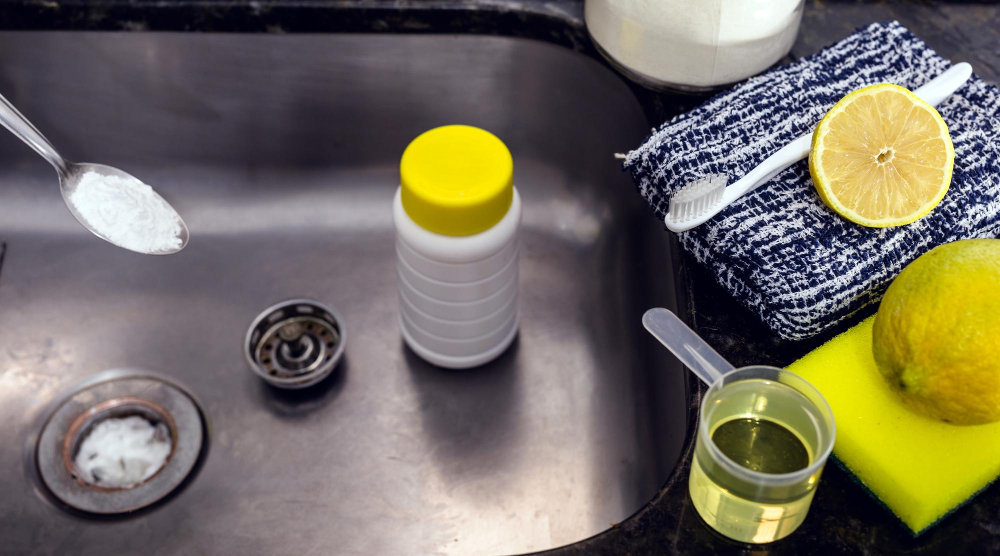
These ingredients work together to break down any organic matter causing the odor, leaving your sink smelling fresh.
To use this method, start by pouring a cup of baking soda down the drain. Follow it up with a cup of white vinegar.
The mixture will fizz as it reacts with each other, breaking down any buildup or debris in its path.
Let this solution sit for about 10-15 minutes before flushing it out with hot water from the tap. Repeat this process once every week or two to keep your kitchen sink smelling clean and fresh.
Pouring in Hot Water
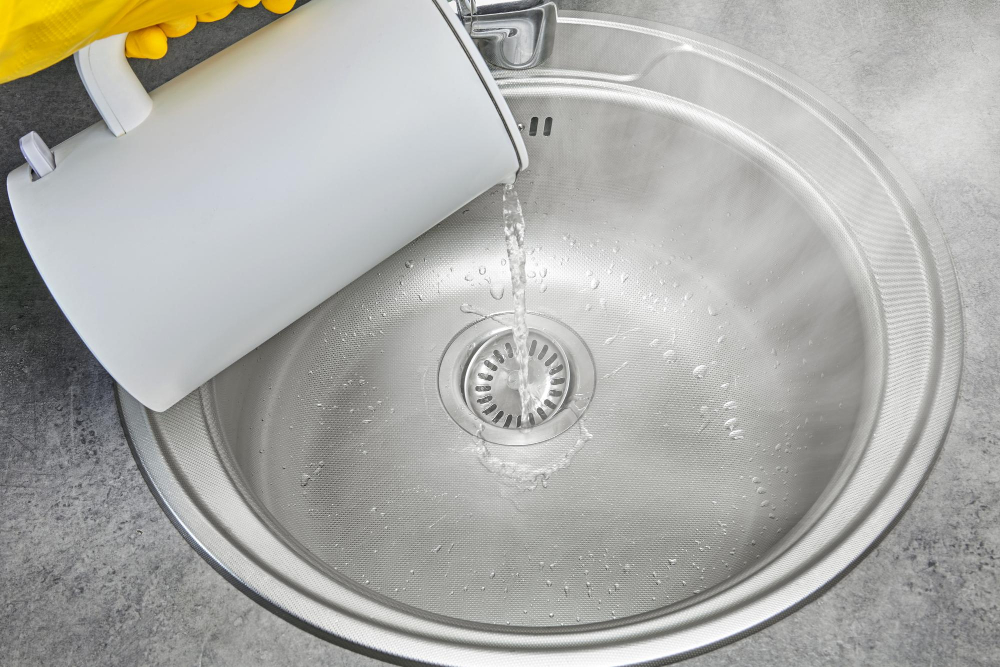
Hot water can help dissolve any grease or food particles that may have accumulated inside the drain, causing unpleasant odors. To use this method, boil a pot of water and carefully pour it down the drain.
Be sure to pour slowly so as not to splash yourself with boiling water.
You can also add some salt or baking soda into the boiling water for added cleaning power. The heat from the hot liquid will help break down any buildup on your pipes while killing off bacteria that could be contributing to bad smells.
It’s important to note that pouring hot (but not boiling) tap water regularly down your sink drains can also prevent future build-up and keep them smelling fresh between deep cleanings.
While pouring in hot tap or boiled saltwater is an easy fix for minor odor issues, it may not solve more severe problems like clogs caused by hairballs or other debris stuck deeper within pipes.
Boiling Water Flush Technique
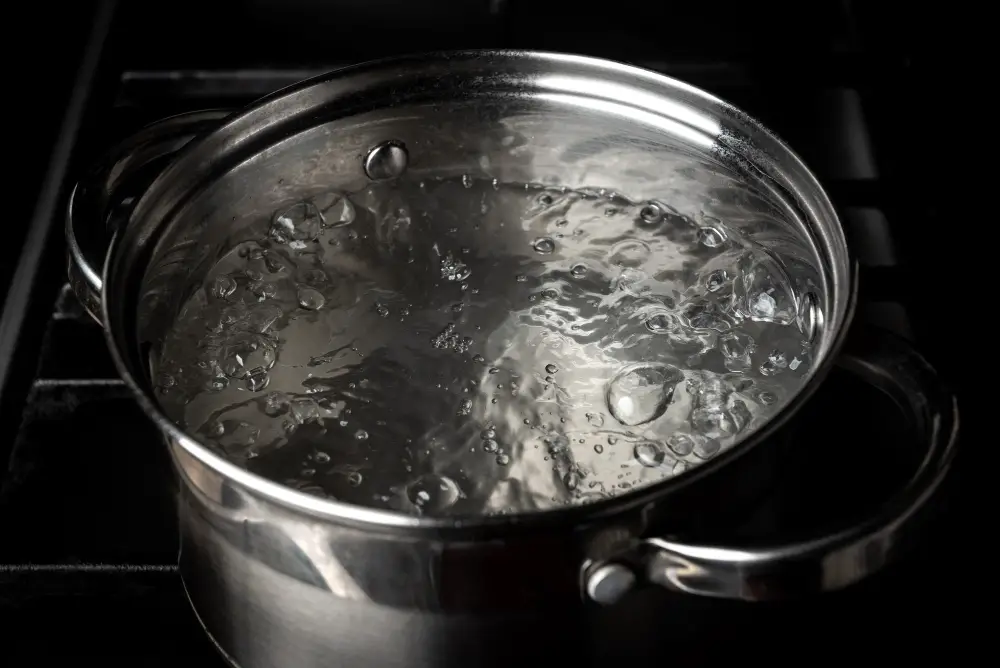
This technique works well for removing any buildup or debris that may be causing the odor.
To use this method, boil a pot of water on your stove and carefully pour it down the drain. Be sure to pour slowly so as not to splash yourself with hot water.
The heat from the boiling water will help break up any grease or food particles that may have accumulated in your pipes, allowing them to flow freely down into your sewer system.
It’s important to note that this method should only be used on metal pipes, as plastic ones can melt under high temperatures. If you suspect there might be a blockage deeper within your plumbing system than just at the sink level (such as in a main line), then it’s best not to attempt this technique without professional assistance.
Inspecting and Cleaning the P-trap
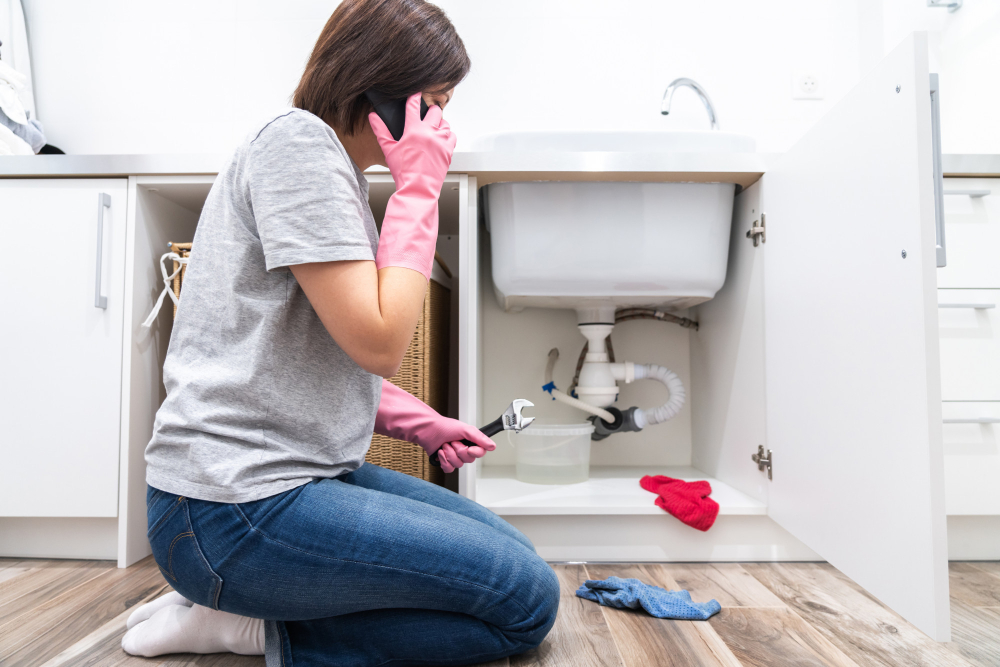
Over time, debris such as food particles, grease, and hair can accumulate in the trap causing it to clog and emit an unpleasant odor. To inspect and clean the P-trap:
- Turn off the water supply valves under your sink.
- Place a bucket or container underneath the trap to catch any excess water.
- Loosen the slip nuts on both ends of the trap using pliers or a wrench.
- Remove any debris by hand or with a small brush.
Once you have cleaned out all visible debris from inside of it, reassemble everything back together tightly so there are no leaks.
Addressing Sink Overflow Issues
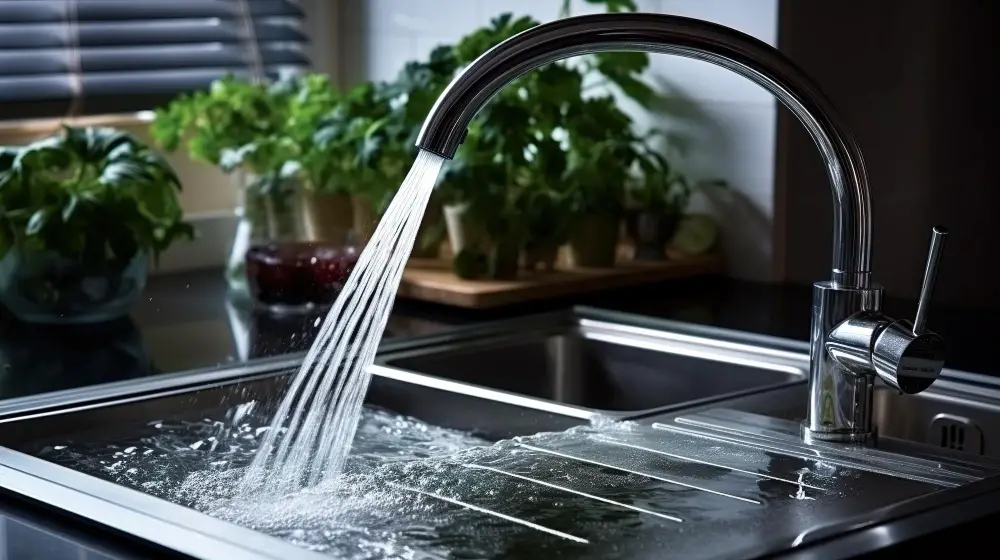
When water overflows from the sink, it can seep into hard-to-reach areas and create a breeding ground for mold and bacteria. To address this issue, you need to ensure that your sink has an adequate overflow system in place.
If you notice that water is overflowing from your sink frequently, it may be time to replace or repair the existing overflow system. You should also check if there are any blockages in the drain or P-trap that could be causing water backup.
To prevent future occurrences of this problem, make sure not to leave running water unattended while using the sink. Avoid pouring grease down your drain as it can solidify and cause clogs leading up to an overflow situation.
Maintaining Proper Ventilation
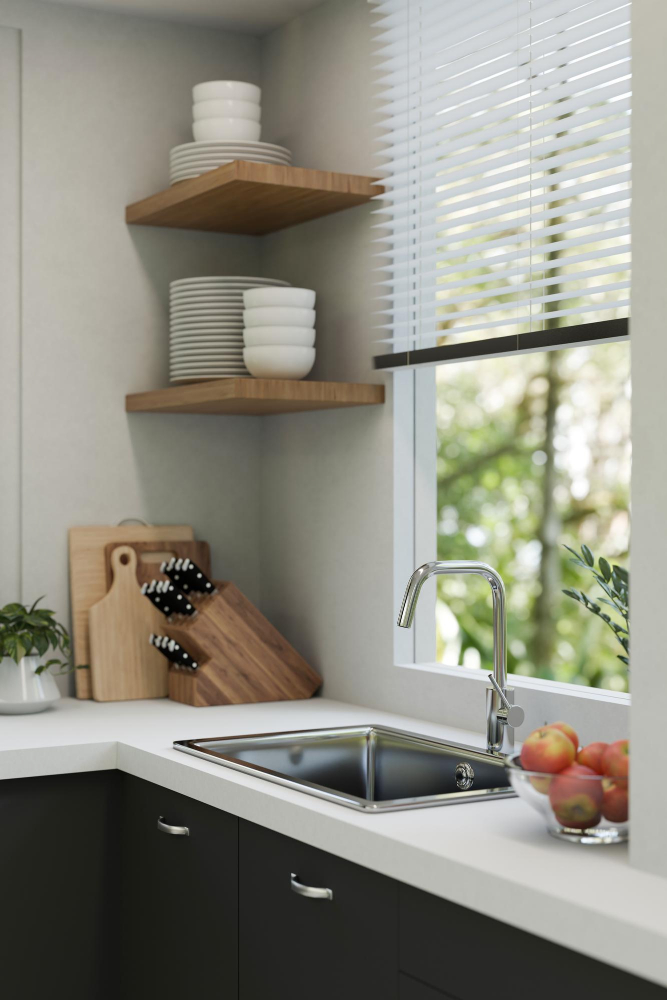
A lack of proper airflow can cause musty smells to linger, especially around your sink area. To ensure adequate ventilation, make sure that your kitchen has a functioning exhaust fan or range hood installed above the stove.
If you don’t have an exhaust fan or range hood, consider installing one as soon as possible. These devices help remove excess moisture and cooking fumes from the air before they settle on surfaces like walls and cabinets.
In addition to using an exhaust fan or range hood while cooking, it’s also important to keep windows open when possible for natural ventilation. This allows fresh air into your home while pushing out stale air that may be causing unpleasant odors.
Replacement of Damaged Pipes
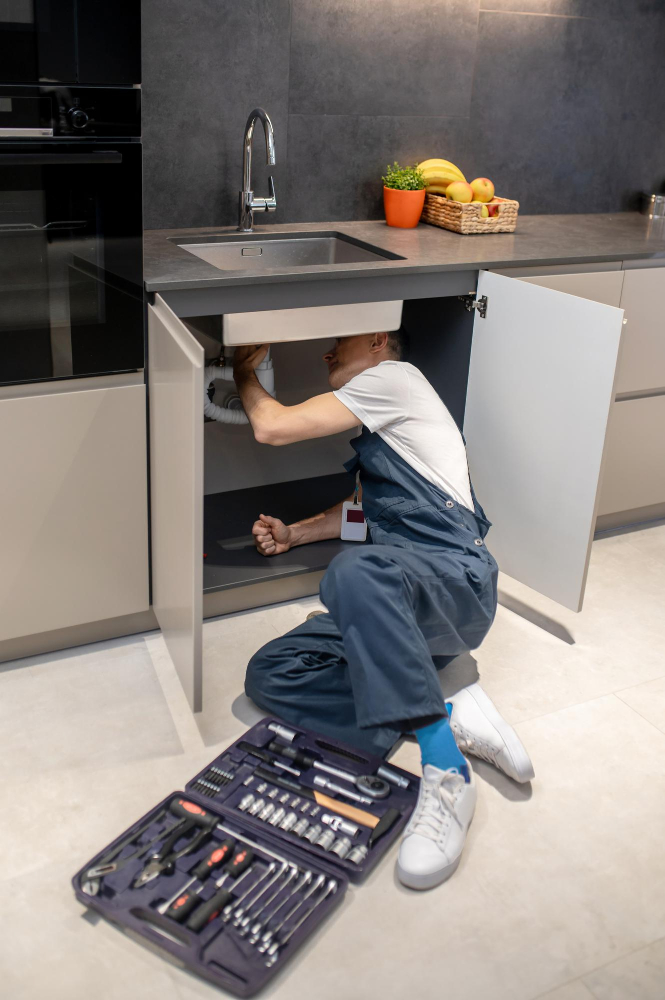
Over time, pipes can become corroded or cracked, leading to leaks that allow moisture and bacteria buildup. This not only causes unpleasant odors but also poses health risks for you and your family.
Replacing damaged pipes is a job best left to professionals as it requires specialized tools and expertise. A plumber will assess the extent of damage before recommending whether repairs or replacement are necessary.
In some cases, replacing just a section of pipe may suffice while in others complete replacement is required. While this option may seem costly upfront, it’s an investment that pays off in terms of improved air quality within your home.
Deep Cleaning With Bleach
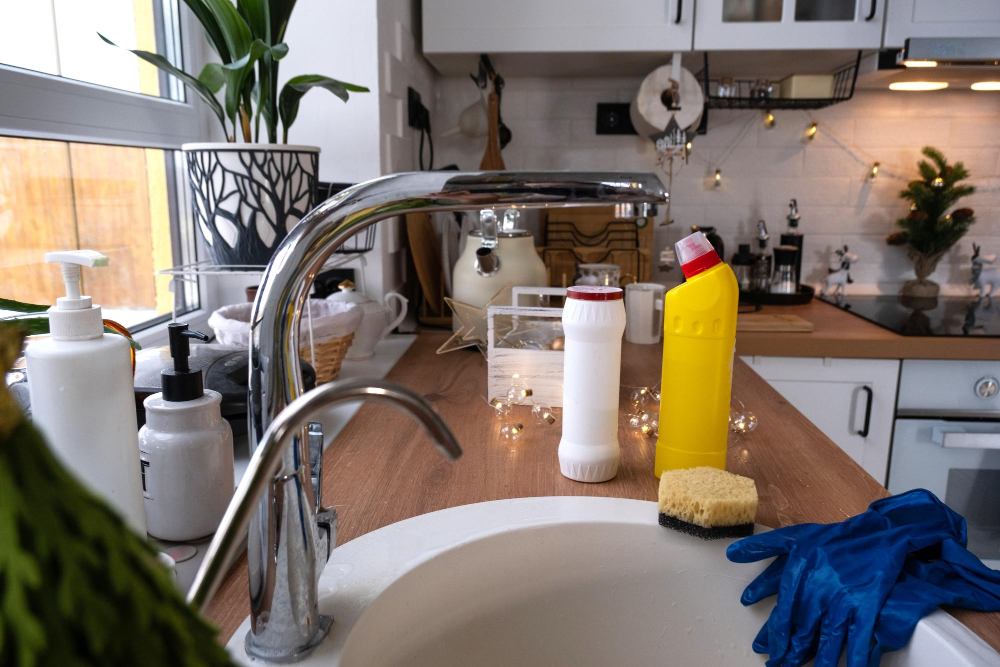
One effective way to do this is by using bleach. However, before using bleach, make sure that your sink is made of non-porous materials such as porcelain or stainless steel since bleach can damage some surfaces.
To start with this method, mix one part household bleach with ten parts water in a bucket. Then pour the solution down your drain and let it sit for about 15 minutes before flushing it out with hot water.
Next, use a scrub brush or sponge soaked in the same solution to clean around your sink area thoroughly. Be careful not to splash any on yourself or nearby surfaces as undiluted chlorine can cause skin irritation and discoloration on fabrics.
Rinse everything well with warm water until there’s no trace of chlorine left behind.
Utilizing Enzyme-Based Cleaners
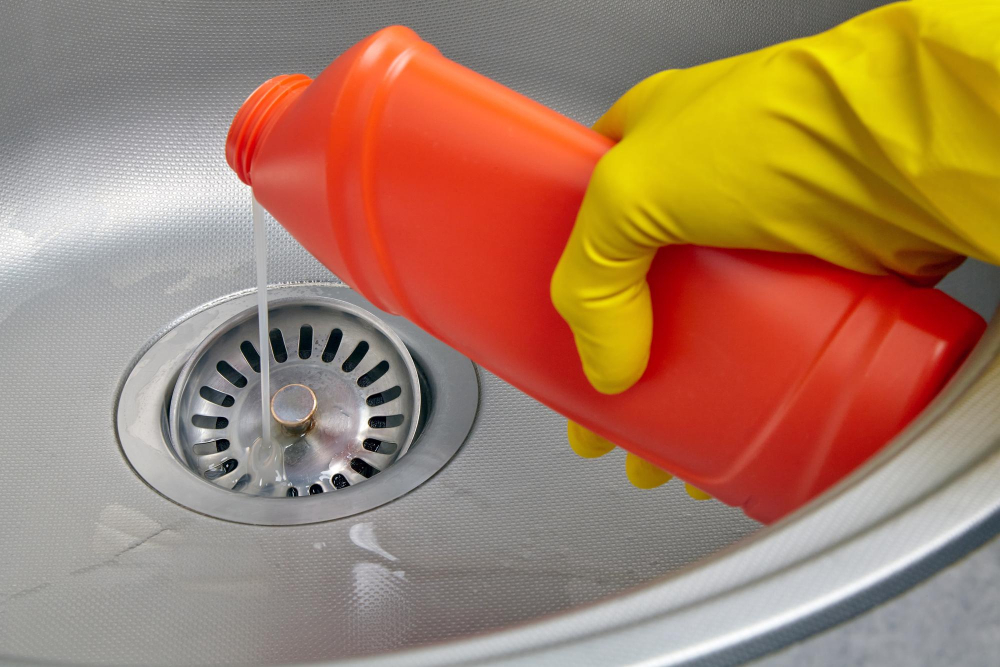
These cleaners use enzymes to break down organic matter, such as food particles and grease, that can cause unpleasant odors in your kitchen sink. They are also effective at removing buildup from the pipes and preventing clogs.
To use an enzyme-based cleaner, simply pour it down the drain according to the instructions on the label. Let it sit for a few hours or overnight before running hot water down the drain to flush out any remaining debris.
It’s important to note that enzyme-based cleaners may take longer than chemical alternatives like bleach or vinegar but they offer long-lasting results without damaging your plumbing system.
Utilizing enzyme-based cleaners is an excellent way of getting rid of musty smells in your kitchen sink while keeping things eco-friendly and safe for you and your family.
Citrus Peels for Freshness
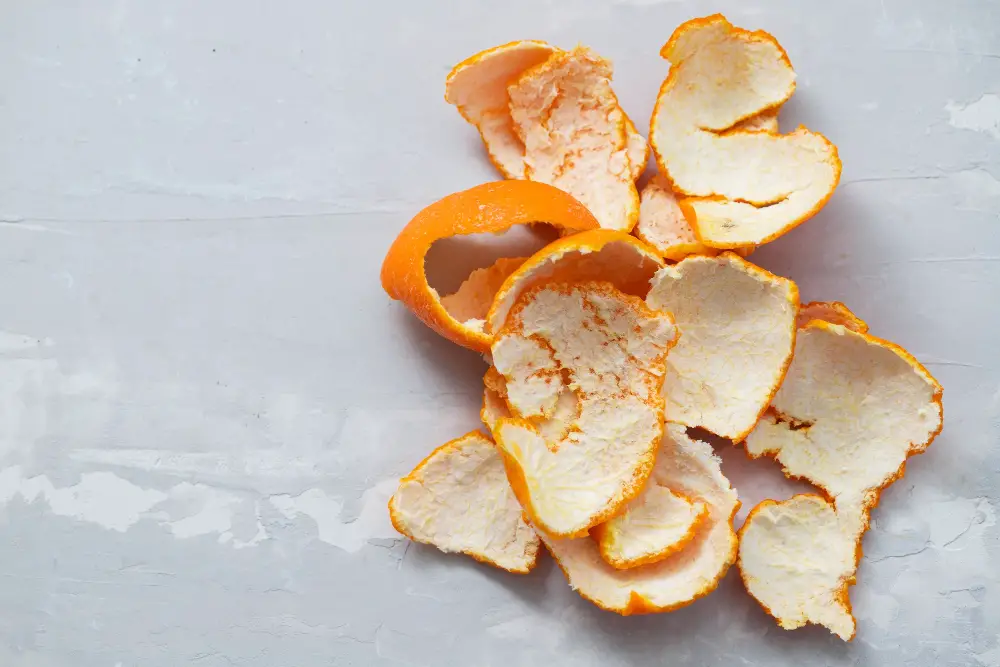
Citrus fruits like lemons, limes, and oranges contain essential oils that can help neutralize unpleasant odors in the sink area. Simply cut up some citrus peels into small pieces and drop them down the drain.
Turn on the hot water tap to let it run through the disposal unit or drainpipe.
The acidic properties of these fruits also help break down any grease or grime buildup in your pipes while leaving behind a refreshing scent. You can use this method once every few weeks as part of your regular cleaning routine.
Getting rid of musty smells from your kitchen sink is not rocket science but requires consistent effort on maintaining proper hygiene practices around it.
Additional Tips to Prevent Musty Smells

Firstly, avoid pouring grease or oil down the drain as they can solidify and cause blockages. Instead, dispose of them in a separate container and throw it away with your regular trash.
Secondly, make sure that you run hot water through the sink after each use for at least 30 seconds. This will help flush out any food particles or debris that may have accumulated in the pipes.
Thirdly, consider using a mesh strainer over your drain to catch any large food particles before they go down into the pipes.
Lastly, ensure proper ventilation by opening windows or turning on exhaust fans while cooking or washing dishes. Good airflow helps prevent moisture buildup which is one of the main causes of mold growth and musty odors.
By following these additional tips along with our earlier suggestions for eliminating musty smells from your kitchen sink area – you’ll be able to enjoy fresh-smelling air every time you enter this space!
FAQ
Why does my kitchen sink smell musty?
Your kitchen sink smells musty due to mold and mildew growth in the plumbing system, caused by warm, dark, and damp conditions, and exacerbated by the presence of food particles and organic debris.
What’s the best thing to get rid of sink smell?
The best thing to get rid of sink smell is to use a mixture of 1 quart of 3 percent hydrogen peroxide, ¼ cup of baking soda, and 1-2 teaspoons of liquid dish soap, as discovered by chemist Paul Krebaum.
What are the common causes of musty odors in kitchen sinks?
Common causes of musty odors in kitchen sinks include buildup of food debris, grease, and bacteria.
How can I prevent a musty smell from developing in my kitchen sink area?
To prevent a musty smell in the kitchen sink area, regularly clean the sink, drain, and garbage disposal, and ensure proper ventilation.
Are there any natural, eco-friendly methods to eliminate musty odor from the kitchen sink?
Yes, pouring a mixture of baking soda and white vinegar down the kitchen sink drain can effectively eliminate musty odors in an eco-friendly manner.



